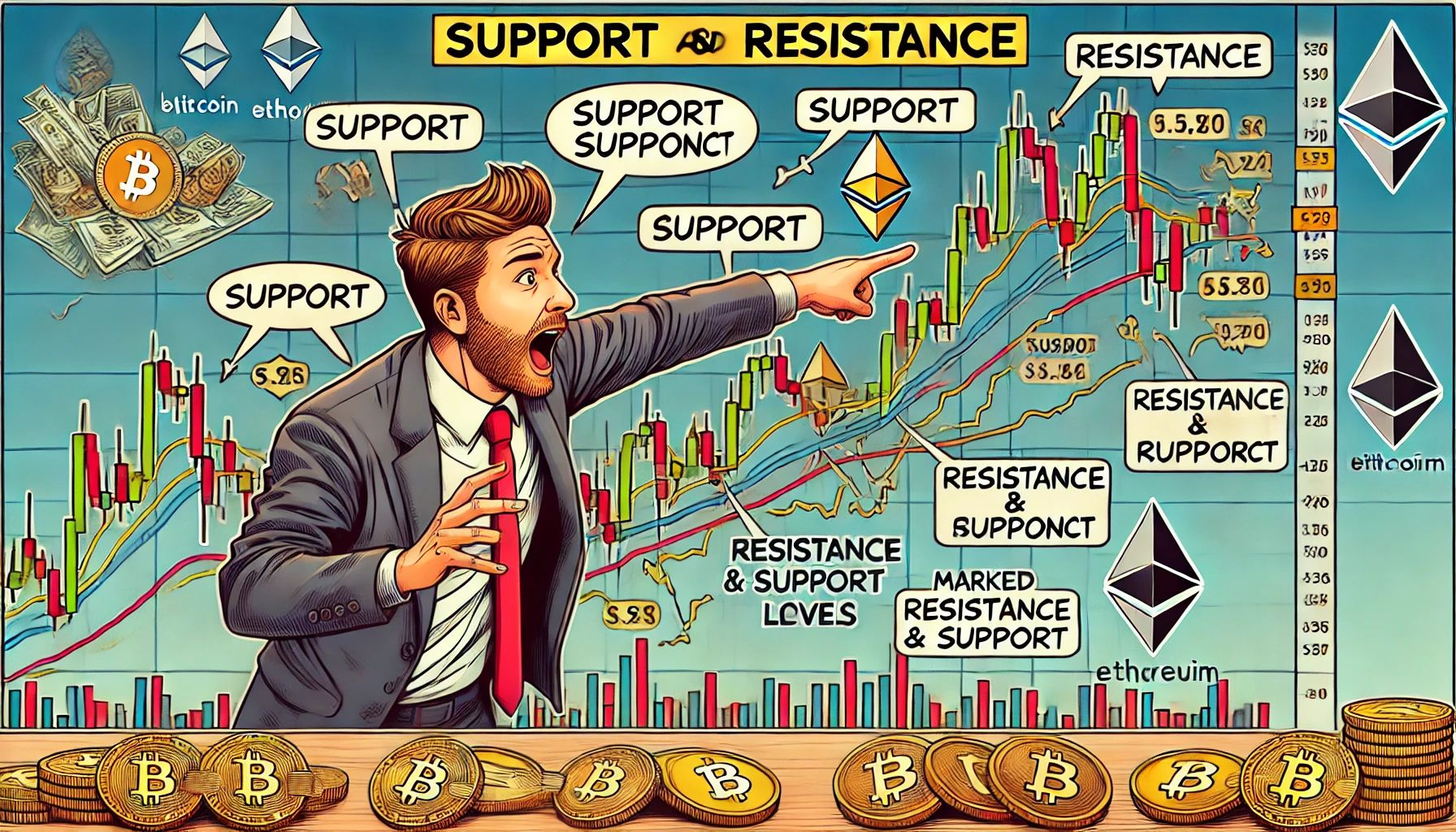📌 Trading is not just about analyzing charts and strategies—it’s also about controlling emotions. Learn how to stay composed in volatile market conditions, avoid impulsive decisions, and maintain consistency in your trades.
Why Is Psychology More Important Than Strategy in Trading?
❌ Even the most advanced trading strategy won’t help if a trader cannot control their emotions.
💡 Emotional decisions lead to chaotic trading, poor risk management, and unnecessary losses. Mental resilience allows traders to stick to their strategy even in high-pressure situations.
How Lack of Emotional Control Leads to Losses
• Fear prevents traders from making rational decisions. It forces them to track their emotions rather than market signals, often closing trades too early and missing potential profits.
• Greed makes traders hold onto trades for too long, hoping for even bigger profits.
• FOMO (Fear of Missing Out) leads traders to enter trades without clear signals, fearing they might miss an opportunity.
• Emotional overload results in poor market analysis and flawed decision-making.
📌 Conclusion: Emotional control is the foundation of profitable trading. Psychology helps traders follow strategies, minimize risks, and maintain discipline.
✅ What Are the Benefits of Emotional Control?
Strong trading psychology makes traders more efficient, disciplined, and resilient.
✔ Sticking to a plan – trading without impulsive decisions helps traders avoid unnecessary losses.
✔ Managing losses effectively – adherence to stop-losses and risk management prevents significant drawdowns.
✔ Developing self-discipline – the ability to resist emotional reactions even in volatile markets.
✔ Maintaining composure in trading – staying focused during periods of high market fluctuations.
✔ Logical market analysis – making decisions based on facts rather than emotions.
📌 Conclusion: Emotional control is not about suppressing emotions—it’s about managing them effectively in trading.
🔴 What Happens If a Trader Lacks Psychological Stability?
📌 Emotional imbalance leads to mistakes that destroy trading accounts.
❌ Fear forces traders to close profitable trades too early.
❌ Greed pushes them to increase position sizes without proper risk assessment.
❌ Overconfidence leads to reckless trades without solid analysis.
❌ Revenge trading makes traders ignore stop-losses and trade based on emotions.
🚀 How to Fix It:
✔ Implement strict risk management (risk no more than 1-2% per trade).
✔ Limit the number of trades per day to reduce emotional fatigue and track progress effectively.
✔ Develop awareness in trading – analyze every decision through statistical reasoning, not emotions.
📌 Conclusion: Emotions can be an ally if you learn how to control them.
🚧 The Biggest Psychological Traps in Trading
🔥 1. Fear in Trading: How It Prevents Profitability
🚨 Fear in trading: The silent killer of profits and discipline.
📌 Fear is one of the most dangerous enemies of a trader. It leads to irrational decisions, avoidance of good trading opportunities, and poor risk management. As a result, traders lose money not because of bad strategy but due to their psychological state.
🔹 Major Trading Fears and Their Consequences:
❌ Fear of Loss (Loss Aversion).
• Closing trades too early, not allowing profits to grow.
• Avoiding trades even when technical analysis confirms strong entry points.
❌ Fear of Making Mistakes.
• Constant doubts about trading decisions cause traders to miss good entries.
• Fear of incorrect analysis leads to procrastination rather than action.
❌ Panic During Market Corrections.
• Selling positions emotionally during short-term price drops, rather than letting the market recover.
❌ Fear of Long-Term Failure.
• Traders start doubting their ability to make consistent profits.
• Frustration makes them quit trading prematurely, not giving themselves time to develop.
📌 Conclusion: If fear controls your decisions, your strategy and analysis become useless.
⚡ FOMO (Fear of Missing Out): Why It Leads to Losses
📌 FOMO is the fear of missing a profitable trade, causing traders to act impulsively.
💡 How FOMO Affects Traders:
• Entering trades too late when prices have already moved.
• Buying an asset without confirmation signals because “everyone else is buying.”
• Investing too much capital, hoping for quick profits.
• Ignoring risk management and stop-losses.
🚨 Why Is FOMO Dangerous?
❌ Traders lock in losses when the market reverses, closing trades in the red out of fear.
❌ Overloading positions – placing too much capital in one trade, increasing risk exposure.
❌ Abandoning strategy – emotions take control, leading to reckless trading.
🚀 How to Overcome FOMO:
✔ Stick to your trading plan. If there’s no signal, don’t enter the trade.
✔ Evaluate trade potential before entering. Buying at the peak is a recipe for losses.
✔ Use technical analysis (support/resistance levels, indicators).
✔ Develop discipline by keeping a trading journal.
📌 Conclusion: FOMO is a trap that causes traders to lose money by ignoring their strategy.
✅ How to Overcome Fear and Gain Confidence in Trading?
📌 Emotional control is a skill that can be developed. The more discipline you build, the less fear you will experience.
🚀 7 Proven Techniques to Overcome Fear in Trading
1️⃣ Strictly follow your trading plan.
📌 Clear entry and exit points eliminate uncertainty.
2️⃣ Use stop-losses and take-profits.
📌 Set risk limits before entering a trade to avoid panic.
3️⃣ Don’t risk too much capital.
📌 Keep risk per trade between 1-2% to minimize fear of losses.
4️⃣ Maintain a trading journal.
📌 Write down all emotions, mistakes, and reasons for trades to identify weak points.
5️⃣ Practice mental preparation before trading.
📌 Meditation, breathing exercises, and physical activity reduce stress and improve focus.
6️⃣ Use demo trading to practice strategies.
📌 The more experience you gain, the less fear you will feel in live markets.
7️⃣ Accept losses as part of trading.
📌 Even the best investors experience losses—it’s about controlling them, not avoiding them.
📌 Conclusion: Overcoming fear isn’t about eliminating emotions but learning how to use them wisely.



